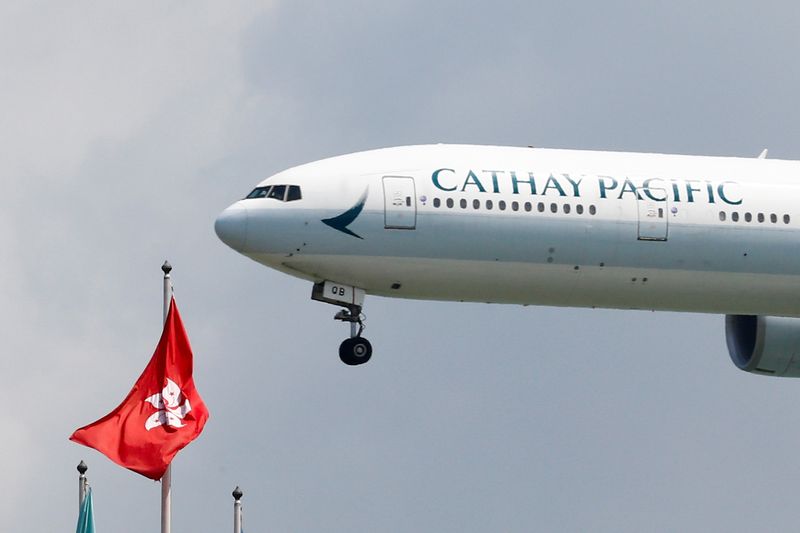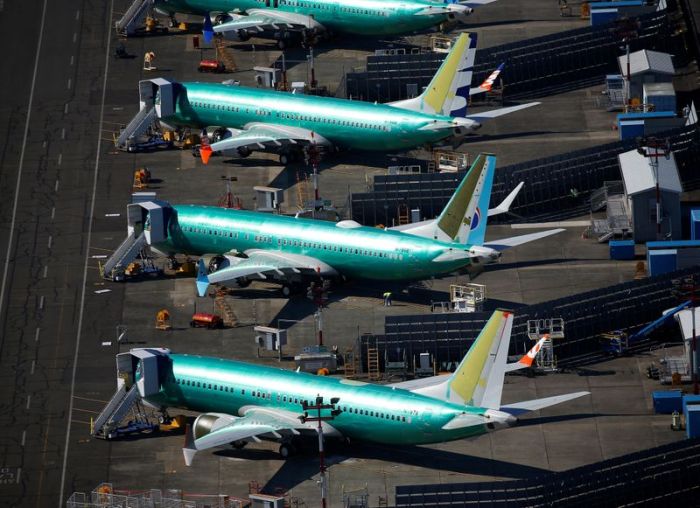SYDNEY (Reuters) – Cathay Pacific Airways Ltd <0293.HK> said it expects to repay the Hong Kong government for HK$19.5 billion ($2.52 billion) of preference shares over a three to five year period.
The shares are part of a $5 billion recapitalisation package announced on Tuesday to help the airline weather the coronavirus crisis, which the International Air Transport Association estimates will cost the industry a record $84 billion in 2020.
The notes carry a coupon rate of 3% for the first three years, rising to 5% in year four, 7% in year five and 9% in year six, giving the airline an incentive to redeem them.
“We would certainly be expecting to repay that over a 3-5 year period,” Chief Financial Officer Martin Murray said in an analyst briefing posted to the airline’s website late Tuesday.
Murray said the package, which also includes a HK$11.7 billion rights issue to current shareholders including Swire Pacific Ltd <0019.HK>, Air China Ltd <601111.SS> and Qatar Airways, would more than halve the airline’s gearing levels.
“That in turn restores access to both the equity and debt market and allows us to tap that market later in the year or next year for equity and debt,” he said.
The Hong Kong government could gain a 6% stake in Cathay via HK$1.95 billion of warrants convertible to shares. Finance Secretary Paul Chan said on Tuesday it was not the goverment’s intention to remain a long-term shareholder in Cathay.
Swire, which owns 45% of Cathay, has agreed to remain a controlling shareholder for as long as the government owns preference shares or any amount of a HK$7.8 billion bridging loan remains outstanding.
Daiwa analyst Kelvin Lau told clients he expected the airline’s share price to come under pressure because of the potential 43% dilution from the recapitalisation package.
(Reporting by Jamie Freed; editing by Jane Wardell)



















